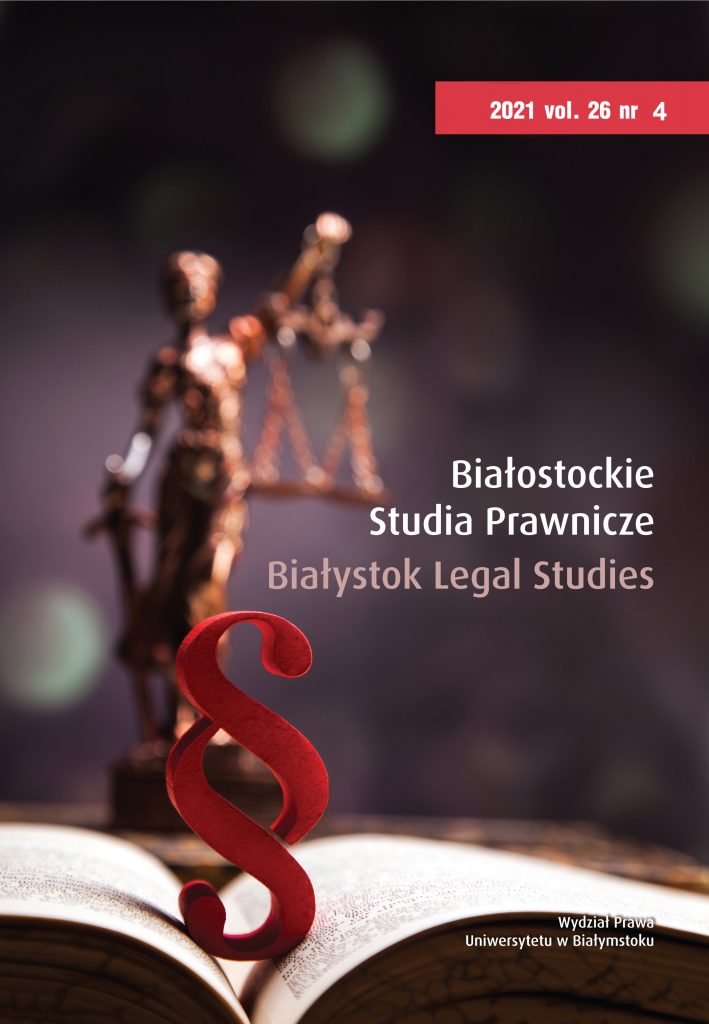The German-Polish Tax Problems of Cross-Border Workers in the COVID-19 Pandemic – When the Remedy is Worse than the Problem
Słowa kluczowe:
COVID-19, double taxation, employment income, mutual agreement procedure (MAP)Abstrakt
The article pertains to the tax issues arising from the COVID-19 pandemic in respect of cross-border workers. The main issue is the impact of the restriction in cross-border movements during the pandemic on the determination of the place of work. The authors refer to two situations. The first is when a Polish worker employed by a Polish employer and working abroad cannot return to Poland. The second is when he or she performs work at home in Poland instead of at the normal place of work abroad. The authors consider the legal fiction of carrying out work in the place where it would have been done before the pandemic as a rational solution. However, they are strongly critical of the introduction of such solution via the Mutual Agreement.Bibliografia
Ault H., Improving the Resolution of International Tax Disputes, “Florida Tax Review” 2005–2005, no. 7.10.5744/ftr.2005.1031
Barrett G., Protecting Legitimate Expectations in European Community Law and in Domestic Irish Law, (in:) Yearbook of European Law 2020.
Bingham T., The Rule of Law, Penguin 2010.
Cai Q., Zhang P., A Theoretical Reflection on the OECD’s New Statistics Reporting Framework for the Mutual Agreement Procedure: Isolating, Measuring, and Monitoring, “Journal of International Economic Law” 2018, no. 21.10.1093/jiel/jgy043
Casady C.B., Baxter D., Pandemics, public-private partnerships (PPPs), and force majeure | COVID-19 expectations and implications, “Construction Management and Economics” 2020, no. 38.10.1080/01446193.2020.1817516
Chorążka J., Rzeżnicka K., Nowe Polsko-Niemieckie Porozumienie Wpływa na Opodatkowanie Pracy Zdalnej Pracowników Transgranicznych, https://studio.pwc.pl/aktualnosci/alerty/polsko-niemieckie-porozumienie-wplywa-na-opodatkowanie-pracy-zdalnej-pracownikow-transgranicznych.
Frowein J.Abr., Hahn M.J., The Participation of Parliament in the Treaty Process in the Federal Republic of Germany-Europe, “Chicago-Kent Law Review” 1991, vol. 67, Issue 2, https://core.ac.uk/download/pdf/217423164.pdf.
Gardiner R., Treaty Interpretation, Oxford 2008.
Hattingh J., The Multilateral Instrument from a Legal Perspective: What May Be the Challenges?, “Bulletin International Taxation” 2017, no. 71.
Kaczor K., (in:) M. Jamroży, A. Cloer (eds.), Umowa o unikaniu podwójnego opodatkowania z Niemcami, Warsaw 2007.
Kiraz Ş.E., Üstün E.Y., COVID-19 and force majeure clauses: an examination of arbitral tribunal’s awards, “Uniform Law Review” 2020, no. 25.10.1093/ulr/unaa027
Kostić S.V., In Search of the Digital Nomad: Rethinking the Taxation of Employment Income under Tax Treaties, “World Tax Journal” 2019, no. 5.
Morawski W., Opodatkowanie Dochodów z Pracy Najemnej w Świetle Umów o Unikaniu Podwójnego Opodatkowania (Cz. 1), „Przegląd Podatkowy” 2006, no. 9.
Makimoto T., Manners D., Digital Nomad, Wiley 1997.
Oats L., Miller A., Mulligan E., Principles of International Taxation, Bloomsbury 2017.
OECD, Model Tax Convention on Income and on Capital (Full Version), https://www.oecd-ilibrary.org/taxation/model-tax-convention-on-income-and-on-capital-full-version_9a5b369e-en.
OECD, The Updated Guidance on Tax Treaties and Impact of the COVID-19 Pandemic, 15 (21 January 2020), https://www.oecd.org/tax/treaties/guidance-tax-treaties-and-the-impact-of-the-covid-19-crisis.htm.
Parliament’s Role in International Treaties, Bundestag, https://www.bundestag.de/resource/blob/509982/1316a1c42f1a8ee8a04cc65640d8af40/WD-2–038-17-pdf-data.pdf.
Pötgens F., Income from International Private Employment, IBFD 2007.
Pötgens F., Stand-By Fee Taxable in Residence State Under Art. 15 of the OECD Model, “European Taxation” 2008, no. 2.
Rust A., Germany: Taxing Right for a Golden Handshake and the Effect of a Mutual Agreement between the Competent Authorities, (in:) E.C.C.M. Kemmeren et al. (eds.), Tax Case Law Around the Globe 2016.
Schønberg S., Legitimate expectation in administrative law, Oxford 2000.10.1093/acprof:oso/9780198299479.001.0001



